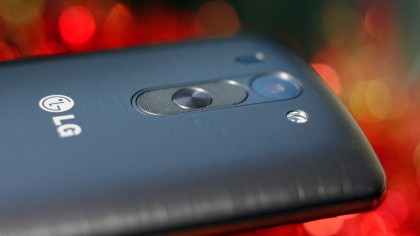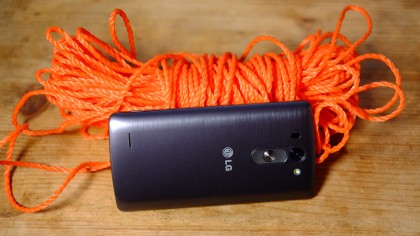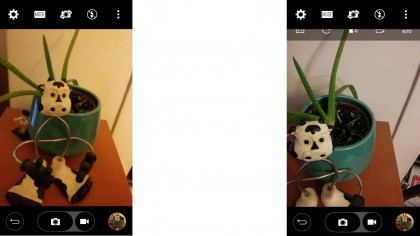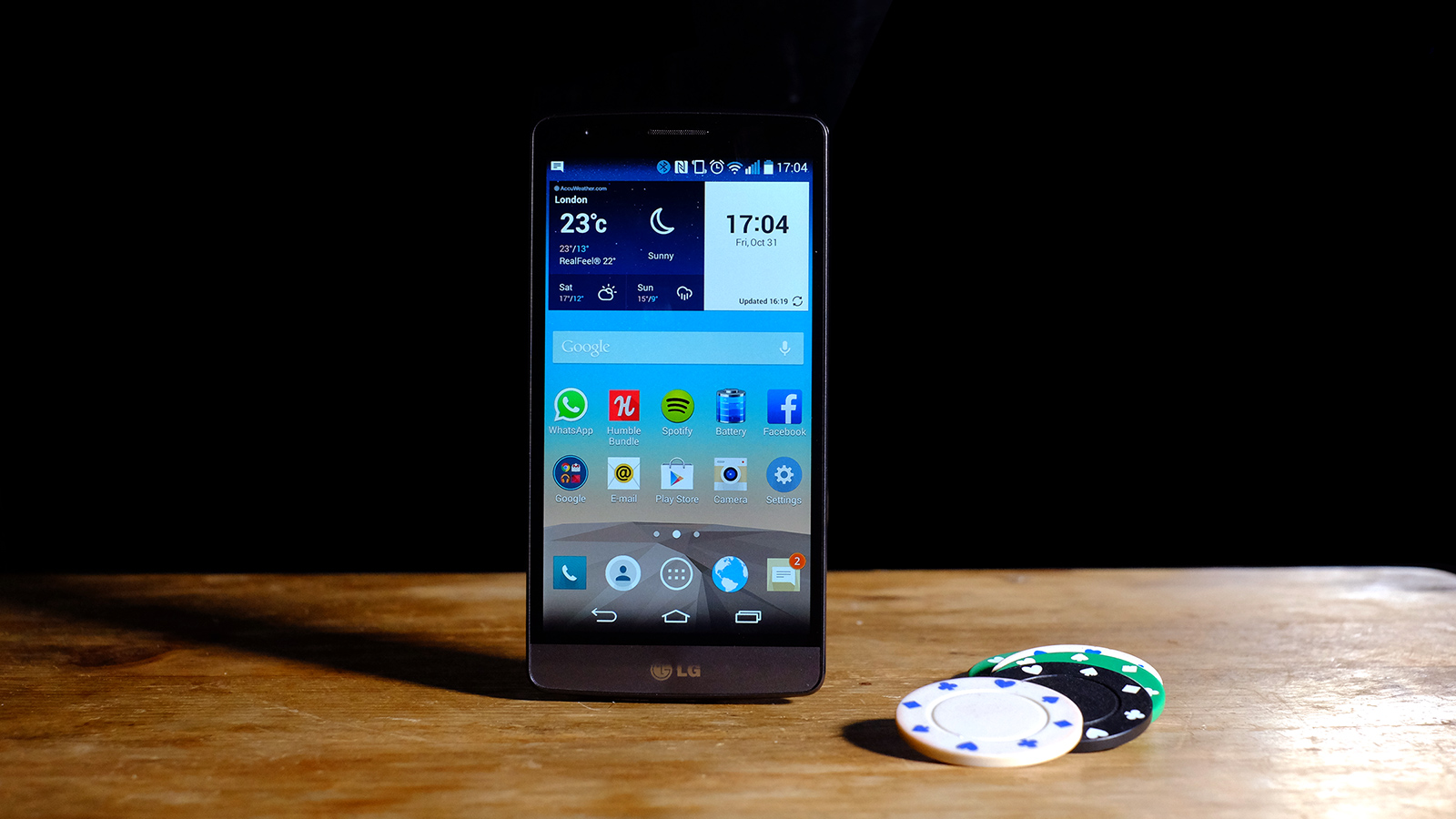Why you can trust TechRadar
The LG G3 S has an 8MP camera with an LED flash. These days, that's very much a mid-range proposition that is not going to turn heads. We're not even all that complementary about some 13MP cameras at this stage.
However, as seen elsewhere in the phone, LG hasn't been able to resist squeezing-in an extra that is actually a little out of place in the G3 S. This time it's laser focusing, something introduced in the LG G3.
What this does is to fire out an infrared beam, which is then reflected back to the LG G3 S. By calculating how long it takes to return the phone can assess how far away the subject is.
It gives the phone a ballpark area in which to use the same focusing system that virtually every camera uses: contrast detection. There's still a little focus back and forth 'seeking', but that's normal for a contrast detect system. The LG G3 S is indeed a bit faster at focusing than the competition, especially when moving between near and far subjects.

The LG G3 S camera is not actually that fast to use though. As noted earlier, on occasion there's a bit of delay as the camera boots-up, and shooting speed is nowhere near as impressive as focusing speed. There's still an almost 2-second wait between photos and there is also what comes across as shutter lag.
Whether it's actual shutter lag or the camera just making some last minute picture setting improvements is largely academic.
With only so-so speed, the LG G3 S's laser focusing system is pretty much wasted.
Sign up for breaking news, reviews, opinion, top tech deals, and more.
Image quality is a couple of generations behind the best too, but I was mostly fairly happy with the results.
Colours are reasonably accurate, avoiding the skewed tone I've seen in some lower-end and mid-range phone cameras. Detail is naturally not on-par with the best smartphone cameras, but in daylight you should be able to get some sharp, well-saturated shots.
In lower lighting the difference between the LG G3 S and the LG G3 becomes more apparent. Without optical image stabilisation or terribly aggressive processing (it seems to focus on sharpening more than noise reduction), low-light photos are quite noisy.

It's the sort of noise that would have been the norm a couple of years ago, but has gradually been improved with smarter processing and wider adoption of OIS.
Even these grainy shots aren't too terrible, though. Low on detail? Sure, but the LG G3 S is pretty good at exposing the shots correctly so you can see what's going on without night skies looking blue when they should really be black.
I was a little disappointed with the HDR mode, though. This can be used to solve the dynamic range issues caused when there's a good degree of light variance in a scene – like most phone cameras, the LG G3 S doesn't have great dynamic range. HDR can boost this, but it's a pretty weak example compared to what Samsung plugs into the Galaxy S5.
There are very few extra modes, in fact. Panorama and HDR are your lot. This makes the camera app blissfully simple, but it won't please those who like to filters and dynamic effects. But you can get these pretty easily with third-party apps, and without paying a penny too.

Video capture tops out at 1080p resolution, and is roughly what I'd expect from a lower-mid range phone. You get software stabilisation – where the LG G3 S crops into the image to give it a buffer to smooth-out movement – and in-shoot auto focusing.
It doesn't seem as though the phone uses the laser focus feature during video, though, as focusing was relatively slow compared with stills shooting.
The front camera does not impress either. The LG G3 S uses a 1.3MP front sensor, and in many shots the level of colour noise – where some colours appear to be made up of a fuzzy rainbow patchwork of shades – was really quite terrible.
LG hasn't really made the right decisions with the LG G3 S camera. Laser focus assistance is a bit pointless when you're working with a camera that doesn't really have the chops to produce low-grain photos in conditions where focusing can become an issue (low light scenes). Still a sensible shooting 'brain' choosing the parameters saves it from disaster.

Andrew is a freelance journalist and has been writing and editing for some of the UK's top tech and lifestyle publications including TrustedReviews, Stuff, T3, TechRadar, Lifehacker and others.
